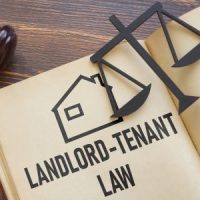Explaining The Florida Landlord’s Right Of Entry

In this day and age, the right to privacy has become more important than ever, and nowhere is this more evident than in one’s home. A right to privacy and quiet enjoyment of one’s home is enshrined in Florida’s common law and in its jurisprudence, but if you are renting, there is one important caveat – the law also grants your landlord the right to enter the home in certain specific situations, whether you consent or not.
When Can They Enter?
The relevant Florida law states that a landlord may enter rental premises “at any time” if it is for the “protection or preservation of the premises.” While this leaves room for interpretation, the legislature has specified certain reasons the landlord may enter as long as one of four statuses exist. They are:
- If the tenant consents;
- In the event of an emergency, such as a fire or flood;
- If the tenant “unreasonably” withholds consent; or
- If the tenant has been absent from the rental unit for at least half of one payment period.
If any of these events has happened or is happening, a landlord may generally enter the premises. Notice is required in most circumstances – 24 hours is customary, but only legally required when repairs are intended – but if it is for ‘protection or preservation of the premises,’ the tenant need not necessarily consent.
‘Abuse’ Of The Right Has Consequences
While the law allows a landlord to enter a rental unit for professional purposes, it also explicitly states that the right of entry shall not be abused or used to “harass” a tenant. Unfortunately, some landlords simply forego providing reasonable notice to their tenants, arguing that the law only requires it for repair-related visits. Alternatively, tenants will sometimes try to unreasonably refuse consent for the landlord to enter.
If either situation is true for you, you do have certain legal options. Both sides have the option of seeking a court order, either to refuse unreasonable access or compel reasonable access; if this option fails, both landlords and tenants have the right to threaten cancellation of the rental agreement (at least 7 days’ notice is required before this can actually happen, if it comes to that). Cancelling the contract is intended to be the nuclear option, so to speak, but if nothing else solves the problem, it is legally possible to do so.
Contact A Tampa Landlord-Tenant Attorney
Renting out a dwelling can be a fairly smooth transaction if both parties are on the same page. If you suspect that the right of access is being either abused or unfairly denied, contacting a Tampa landlord-tenant attorney from the Seward Law Office can help you clarify your legal options. Attorney Alicia Seward has handled these cases before and will work hard on yours – call our office to schedule a consultation.
Source:
leg.state.fl.us/statutes/index.cfm?App_mode=Display_Statute&URL=0000-0099/0083/Sections/0083.53.html
